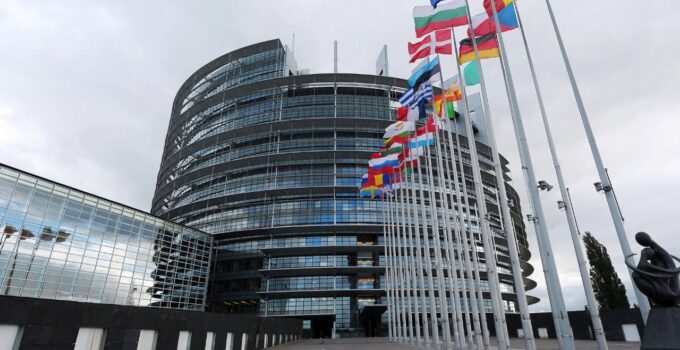Apple’s Strategic App Store Division in Response to EU Regulations. In a groundbreaking move, Apple is set to divide its App Store into two distinct entities, a decision primarily driven by upcoming regulations from the European Union. This split, aimed at aligning with the EU’s Digital Markets Act (DMA), represents a significant shift in Apple’s approach to app distribution within the EU.
iPhone 16 to Feature 8GB RAM and Wi-Fi 6E, Pro Models Get Exclusive Snapdragon X75 Modem
Navigating the New Digital Landscape: Apple’s Adaptation to the DMA
The imminent DMA mandates are prompting Apple to reevaluate its App Store structure. These changes, as reported by Bloomberg’s Mark Gurman, are not just cosmetic but are fundamental, requiring a reconfiguration of Apple’s software distribution model in the EU. The DMA, set to be enforced from March 7, leaves Apple with a tight window of just over seven weeks to implement these pivotal changes.

Key Aspects of the App Store Division
Apple’s decision to bifurcate the App Store into two segments – one for the EU and another for the rest of the world – is a response to specific demands of the DMA. This act aims to democratize the digital space by enforcing more open and competitive practices. Among its stipulations, the DMA requires:
- Sideloading of Apps: Apple will need to enable users within the EU to install third-party app stores and applications, breaking the long-standing exclusivity of the App Store.
- Promotion of Third-Party Offerings: Developers will gain the ability to promote their apps outside of the App Store, a move that challenges the traditional confines of app marketing within Apple’s ecosystem.
- Third-Party Payment Systems: The DMA also pushes for the integration of alternative payment systems, offering developers and consumers more options beyond Apple’s native payment gateway.
Tim Cook’s Engagement with EU Antitrust Officials
Last week, Apple CEO Tim Cook met with Margrethe Vestager, the European Union’s antitrust chief, at Apple Park. During this meeting, Vestager emphasized the necessity for Apple to adhere to these upcoming regulatory requirements. This conversation underscores the serious and immediate nature of these impending changes.
Implications for Apple’s Services
The ramifications of this split are extensive, affecting not just the App Store but other Apple services like FaceTime and Siri. Under the DMA, these services must also undergo modifications to ensure compliance with the new regulations. This might involve altering their functionality to be more inclusive of third-party services and competitors within the EU.
Preparing for a New Era in App Distribution
Apple’s move to split the App Store is a clear indication of the company’s commitment to comply with the DMA, despite the significant technical and operational challenges involved. The company is gearing up for a substantial overhaul of its software ecosystem, reflecting a new era in digital market competition and user choice.
This strategic decision could potentially set a precedent for other tech giants operating within the EU, signaling a broader shift in digital market practices. As Apple navigates these changes, it will be interesting to observe how this affects the global app market, developer dynamics, and user experience.
Balancing Compliance and Innovation
While compliance with the DMA is a necessity, Apple is also likely to focus on maintaining its standards of security, user experience, and innovation. The separation of the App Store will require Apple to ensure that these standards are upheld in both stores, despite the differing regulatory environments.
Potential Challenges and Opportunities
The division of the App Store presents both challenges and opportunities for Apple. On the one hand, it faces the task of implementing significant system changes within a limited timeframe. On the other hand, this move could open new avenues for innovation and partnerships within the EU’s digital marketplace.
The Future of the App Store in the EU
As the deadline approaches, the tech world is watching closely to see how Apple implements these changes and how they will impact the App Store’s operation in the EU. This development is not only pivotal for Apple but also for the entire tech industry, as it may influence how digital services are offered and regulated worldwide.
Conclusion
Apple’s decision to split the App Store in response to the EU’s
Digital Markets Act is a landmark move, reflecting the evolving landscape of digital regulations and market dynamics. This strategic pivot will undoubtedly shape the future of app distribution and digital services in Europe, setting new standards for competition, innovation, and user choice. As Apple embarks on this complex transition, it will be essential to monitor how these changes impact both developers and consumers, and how they might influence global digital market practices. The upcoming weeks will be critical as Apple works to align its App Store and other key services with the new regulatory framework, ushering in a new chapter in the digital era.



